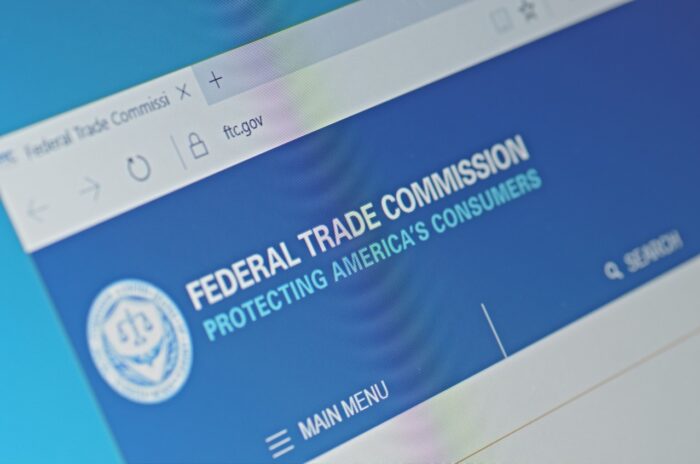Top Class Actions’s website and social media posts use affiliate links. If you make a purchase using such links, we may receive a commission, but it will not result in any additional charges to you. Please review our Affiliate Link Disclosure for more information.

Internet Service Provider Data Retention Report Overview:
- Who: The Federal Trade Commission (FTC) released a staff report during an open meeting last week.
- Why: The FTC study focused on how internet service providers collect, use, store, and monetize customer data.
- Where: The FTC staff report looked into ISPs operating nationwide.
Internet service providers collect more user information than necessary and make it difficult for users to opt out of sharing private data, according to a new staff report presented by the Federal Trade Commission (FTC) at its open meeting last week.
The FTC staff report summed up a two year study the agency conducted into how Internet service providers collect, combine, and monetize the data of internet users.
While the report did not call out any Internet service providers by name, the FTC had previously sent inquiries to T-Mobile US Inc, AT&T Inc., AT&T Mobility LLC, Comcast Cable Communications (doing business as Xfinity), Google Fiber Inc., Verizon Communications Inc., and Cellco Partnership (Verizon Wireless), reports Law360.
Internet Service Providers Profit From Collection of User Data
The study, according to the FTC, shows just how much personal user information Internet service providers (ISPs) have access to and how often they use it for monetary gain.
“Many ISPs in our study collect a host of information from their customers to provide the services they request, and they generally use some of this data for advertising purposes,” the FTC said.
Internet service providers often categorize users by personal and sensitive information, such as race, economic status, sexual orientation, religious beliefs, and political affiliation, according to the report.
The study also found some Internet service providers commonly make the location of users available to third parties, while others collect mobile app usage and web-browsing information to use towards targeted advertising.
“Like traditional advertising networks and edge providers, many of the ISPs in our study engage significantly in targeted advertising and their practices raise bias and equity concerns,” the FTC said.
The FTC found that Internet service providers also regularly make it more difficult for users to opt out of sharing their private data by using prompts that are difficult to close or hard to see.
“Problematic interfaces can result in consumer confusion as to how to exercise these choices, potentially leading to the low opt-out rates we observed from many of the ISPs in our study,” the FTC said.
Opting Out of Data Collection by ISPs Difficult, Says Consumer Protection Agency
Customers also may be faced with a variety of choices that could be difficult to understand or implement, according to the FTC, which says some Internet service providers even require users to manually enter what they don’t want shared on an individual basis — such as a phone number or email address.
The FTC found that opt-out rates typically come out to less than 2 percent of all internet subscribers, which it attributes to the “confusing” way Internet service providers present them with the option.
“Given the confusing nature of the choices, it is not surprising that opt-out rates generally are low,” the FTC said.
The FTC began looking into ISPs back in 2019, after it became more commonplace for them to release their own advertising content while becoming increasingly more vertically integrated, reports Law360.
This vertical integration was one of the reasons the FTC concluded the companies could be “at least as privacy-intrusive as large advertising platforms” such as Google, Facebook, or Amazon.
“A significant number of ISPs have the capability to combine the browsing and viewing history that they obtain from their subscribers with the large amounts of information they obtain from the broad range of vertically integrated products, services, and features that they offer,” the FTC said.
Additionally, the FTC found many Internet service providers have access to the entirety of users’ unencrypted internet traffic history and can track users across websites and their own geographic locations.
Some providers are even able to verify and learn the identity of their subscribers, says the FTC.
Internet service providers are able to get away with more thanks to Congress repealing Federal Communications Commission privacy regulations back in 2017.
The regulations would have required Internet service providers to take steps to secure any sensitive data it came across and to obtain opt-in consent before being able to use or share any information deemed to be sensitive, reports Law360.
While the FTC does not have much power when it comes to making rules about how Internet service providers can operate, it is able to investigate those who it finds are in violation of Section 5 of the FTC Act regarding deceptive or unfair practices.
A federal judge in Florida approved a $6.4 million settlement earlier this month between the FTC and two cruise line owners who the agency accused of being responsible for millions of illegal pre-recorded robocalls offering free vacation packages.
Does your internet service provider make it confusing or difficult to opt out of sharing private data? Let us know in the comments!
Don’t Miss Out!
Check out our list of Class Action Lawsuits and Class Action Settlements you may qualify to join!
Read About More Class Action Lawsuits & Class Action Settlements:















36 thoughts onInternet Service Providers Overcollect User Data, Make It Hard To Opt Out of Sharing, Say Regulators
Add me to this class action
add me please
I don’t even know why they keep contacting me because I’m not even with them only my sister is, but yet I’m constantly being called
Customer service employee hacked my account and made fraudulent charges to my bank
Add me to Comcast, please and thanks.